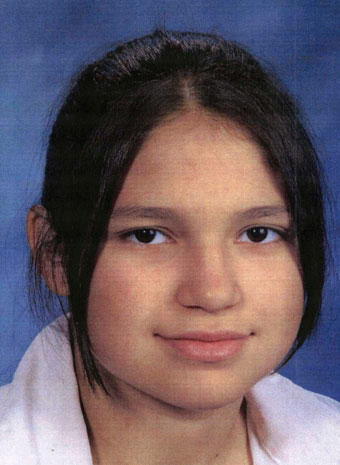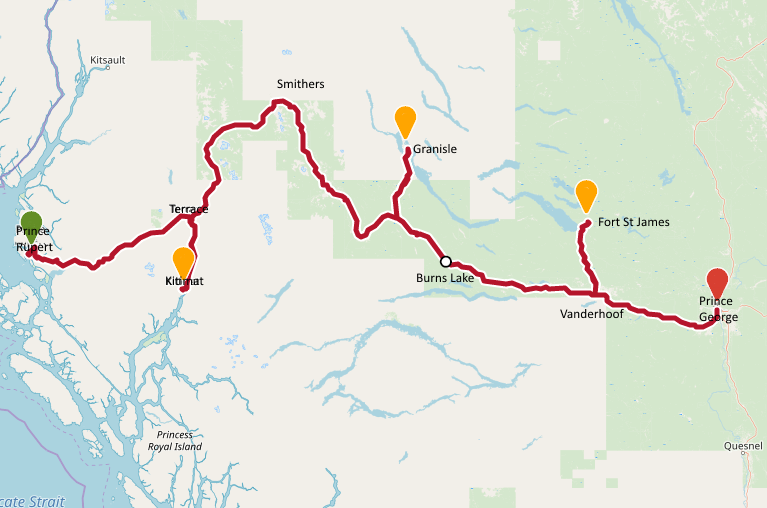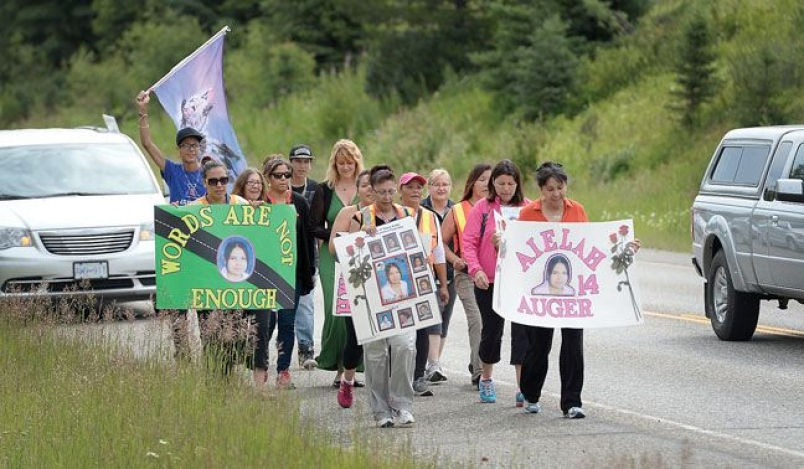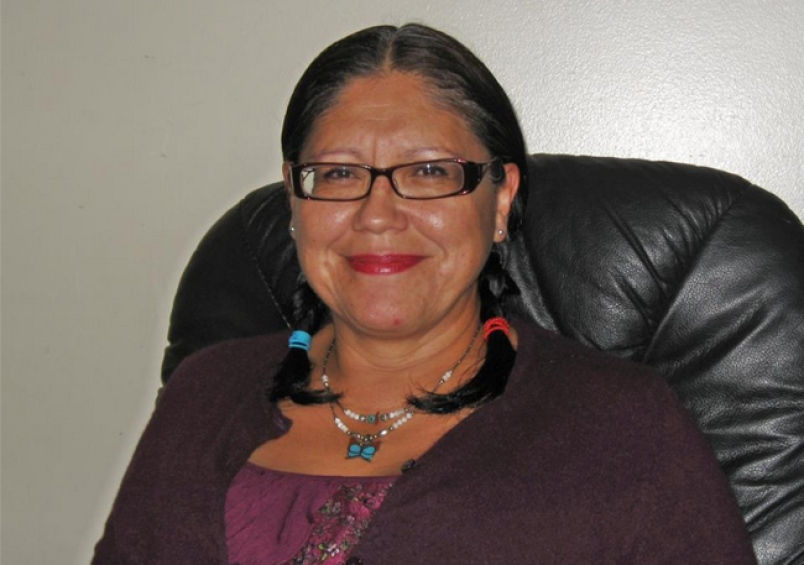The Muder of Aielah Saric-Auger
- Ariel Herrera
- Mar 27, 2020
- 9 min read
Updated: Sep 18, 2020
Prince George is a relatively large town in northern British Columbia. Although not officially a capital, it is considered the province's Northern Capital. It has a population of 86,000 in the metro area, and it is surrounded by dense forest. Logging is the obvious major commodity here which is then used in factories, but a beetle infestation nearly destroyed the industry in the 80’s and 90s. Jobs have since switched to education and health care. I will be honest here and say that the teens here must be bored. This town seems very small without a whole lot to do except drink and hang out at the mall. Because of this, I would imagine that a lot of people know each other. Highway 16 and 67 run through the city and continue on into the forest. These highways are still heavily used for logging trucks. The crime rate is a lot higher here than other cities in B.C., and Prince George is in the top 5 list of most dangerous cities in Canada. The First Nation territory here is the Lheidli T'enneh, which means where the two rivers join. In Prince George, the Fraser river and Nechako river supply the town's drinking water and the two rivers meet just outside the downtown area.
Aielah Katerina Saric-Auger was born on December 30th 1991 in Edmonton, British Columbia. She was the youngest of 6 kids in a tight knit family. Her family was Lheidli T’enneh. Aielah’s mom, Audrey, had some issues with alcohol while raising the kids, but she still fought hard to keep them all together and safe. The kids adored their mother and remembered her making quilted blankets for them. They described their mother as beautiful and strong despite her flaws. They all slept in the same room and depended on each other for support no matter where they were living.
Aielah was 14 years old and attended DP Todd Secondary School in 2006.
Aielah’s siblings described her as very sweet and almost too trusting of people. Her nickname by her mother was Sweetie Pie.

On Thursday February 2nd 2006 Aielah and her siblings Tim and Kyla did what any teen in a small town would do, they went to the mall to meet up with friends. The Pine Centre Mall was 4 km , or 2 ½ miles, from their home. When they met up with their friends, they were invited to go out drinking that night at a bar downtown and left the mall. Tim didn't want to go out and said he would head back home instead. While out drinking, Kyla lost track of Aielah and they got separated at some point and decided to head home hoping to find her sister there. When Kyla arrived home, Aielah didn’t make it back yet so she decided to wait and see if she would show up later that night and told her mom where they had both been. As the hours went by, Audrey began to worry because it wasn’t like the kids to get split up like this and not communicate where they were, even if they were doing something they weren’t supposed to. Also, it was still winter and snowing outside so Audrey wanted to make sure Aielah wasn’t stranded outside or holed up at a business somewhere.
As night turned to morning, Audrey retraced their steps to the mall and the spot they had been drinking, but couldn’t find Aielah. She contacted the people they had been drinking with and one friend said that Aielah was supposed to spend the night at her house, but she saw Aielah get into a black van and leave with someone else.
On Friday morning, Audrey went to the police station to file a missing persons report, but the police told her to wait 78 hours to see if Aielah would call or show up at home. 78 hours is such a long time to expect a worried mother to wait and I don’t think officers really understand this. So Audrey waited the 78 hours, but got busy in the meantime putting up fliers around town with Aielah’s description and picture. She went to all the surrounding businesses to ask if they had seen her daughter, but they couldn’t get any leads.
After the 78 hours came and went, Audrey was prompt in reporting her daughter as missing on February 6th. Police were able to gather surveillance from 2 gas stations along highway 16, and saw Aielah on the camera walking along the side of the road. A video showed her walking past a Sav-on-Foods on 15th Avenue around 1 am and again past the 1500 of Quince Street. She didn’t go into the gas station, but police were able to determine which way she was heading and concluded that she was walking home. They thought that Aileah couldn’t get a ride home that night and decided to walk home instead. Police were able to talk with friends from that night and rule all of them out as a suspect. One thing I couldn’t find was the mention of the black van. I am not sure if the owner of that van was cleared, or if they ever found who was driving it. Either way, they had no suspects or leads to go on.
On February 10th 2006, Aielah’s nude body was found in a ditch off of HWY 16, 23 km (14 miles) from downtown Prince George and near Tabor Mountain. She was identified by officers and also by a necklace she was wearing that her mother had given her. I couldn’t find any reports of her being sexually assaulted, but the way her body was found leads me to think that this crime was sexually motivated. Her death was caused by blunt force trauma to the head. Her body was visible from the road and she was feet away from dense forest. The killer made no attempt to conceal her body.
Aielah’s family had a close casket funeral for her since her body had been too badly decomposed when she was found. She was laid to rest at Gift Lake Metis Settlement.
Unfortunately, Aielah was another statistic of the many women who have been murdered along this highway since the 1970s. Aielah is the second youngest murder victim along this 725 km (450 miles) stretch of road that leads from Prince George to Prince Rupert in Northern B.C. HWY 16 is now referred to as the Highway of Tears, with anywhere of 18-83 deaths depending on who you ask. The First Nations community feels the numbers are a lot higher due to police’s lack of attention to some cases, and bodies not being found. The deaths along this highway are disproportionately indigenous women, who are 4X more likely to be victimized than any other race. Out of the 18 cases that the RCMP recognizes as official deaths along this HWY, 10 of them are indigenous. Again, because more attention is put on young white women, their bodies are found a lot quicker.

Some of you may have heard of a serial killer caught in this area, and he stands out because he was only 19 when he started murdering. His name is Cody Legebokoff and he was convicted in 2014 for murdering 4 women. He murdered these 4 women during 2009-2010 so this timeline wouldn’t fit Aielah’s murder in 2006. Plus, Cody would have been in Fort St. James at the time and it would have been difficult for him being 14 at that time to get to Prince George. The other known killers were all sentenced before 2006 and are either still in jail or died in jail. I wanted to point out a few cases that may be related to Aielah’s if there is another serial killer who has not been caught yet. These cases all happened in Prince George and are unresolved.
Nicole Hoar was 25 when she went missing on July 19, 2002. She was hitchhiking to Smithers from a Prince George gas station. Mary Madeline George has been missing since July 24th 2005. Her exact age is unknown, but by looking at a photo of her she may have been in her late 20s when she went missing in Prince George. She was last seen walking to Spruceland mall. Beverly Warbrick was 20 years old and went missing in June 2007. Anita Florence Thorne was 49 when she went missing on November 19th 2014. She was last spotted blocks away from where Aielah was last seen on video surveillance. Her car was later found. Roberta Marie Sims was 55 when she went missing on May 6 2017. Her car and dog were later found, but no signs of Roberta.
I wanted to remind you again that Aielah was last seen getting into a black van and the driver was unknown to friends. A lot of these cases are hard to cover because there isn’t a lot of information to go off of. The RCMP did not give out the little info they do have about Aielah’s murder.

Since Aielah’s death, The RCMP made a task force called E-PANA which is still going on today and investigates these murders along HWY 16. Driving along this highway today, you will see road signs warning women and girls not to hitchhike. After her daughter’s death, Audrey started participating in a 4 segment healing walk to raise awareness of the brutal crimes against indigenous women and children. The 4 parts were to signify the indigenous belief of a 4 year healing journey, but for Audrey she would never be able to fully heal. According to Audrey, “I buried myself when I buried my daughter”. The walk started where Aielah’s body was found and ended where she was laid to rest.

A few years later in 2010, the family had another tragic loss in their family. Aielah’s maternal uncle and aunt lost their son Samuel Auger. On April 28th, Samuel was out with a female friend at the Mohawk convenience store and an argument between them caused the woman to ask for a ride from a man in a truck. The woman left with the man and when he dropped her off somewhere else, he came back to the gas station where Sam still was. Sam was upset that the man intervened and started throwing stones at his truck. Sam ran away when the truck started moving towards him and the truck eventually struck Sam causing him to hit his head against the pavement. Sam was rushed to the hospital, but little could be done and he passed away 9 days later. The driver of the truck went to police to turn himself in and he was arrested as George Kerr. He has a record of 11 speeding tickets and 1 careless driving conviction. He seemed remorseful in court and claims he had no racial bias. When he reported himself to police he claims that he referred to Sam as a low life retard, but Sam was attending school to become a welder and was not known to be a troublemaker. George was sentenced to 4 years in prison for criminal negligence, but according to the Augers, George Kerr was released on probation after 6 months of serving his 4 year sentence. To them, justice was not served for taking their son’s life. Sam was 29 when he was killed and left behind 5 kids.
When the Augers were interviewed by the National Inquiry in 2018, they referenced that their family had suffered trauma from the residential schools at Lejac in Frazer Lake. Audrey’s mom Jane was a student at one of these boarding schools, and like many others, she self medicated her trauma with alcohol. Alcohol dependency is common for survivors of these boarding schools, and I can see why. These schools were extremely abusive and thousands of children died from neglect or physical abuse. Many times the schools would run out of food, water, and heat was not provided to students during the cold winters. Families did not have a choice to send their children somewhere else since Canada enacted a law making it mandatory for first nation children to attend school. Public schools were purposely not constructed near reservations, so 30 % of first nations families were forced to send their children to Christian-led boarding schools funded by the Dept. of Indian Affairs. While there, the children were stripped of their culture and language in a forceful attempt to assimilate them into a Christian society. This period of time is now considered as a cultural genocide and in 2008 the Truth and Reconciliation Commission was made to raise awareness of the injustices the first nations communities faced and the trauma resulting from it. Alcohol dependency trickled down to Audrey by her mother, but the healing walks she did after her daughter’s death was a sobering moment for her. She had given up alcohol to face what troubled her and found clarity in her grief. Sadly, in 2013 Audrey was in a head on collision on HWY 16 and passed away on the same stretch of road where her daughter was found. I hope that this twisted fate led Audrey and Aielah back together and they now walk the highway together side by side. Please keep Aielah in your hearts. So many other women have been victims of the highway of tears, but Aielah’s story stuck out to me.

If you know any information about Aielah’s death, please call the Prince George RCMP at 1-250-561-3300 or the British Columbia Crime Stoppers at 1-800-222-8477
Sources for this episode include the following:
McDiarmid, Jessica. Highway of Tears: A True Story of Racism, Indifference, and the Pursuit of Justice for Missing and Murdered Indigenous Women and Girls. Atria Books. 2019.
Oleman, Michelle. "Young Hearts, Young Lives Profiles of the Highway of Tears' missing girls". First Nations Drum. 3 September 2006.
Pebbles, Frank. "Audrey Auger, mother and justice crusader, killed in crash" Prince George Citizen. 12 April 2013.
Reay, Kerrie. Truth-Gathering Process Part 1 Statement Gathering. National Inquiry into Missing and Murdered Indigenous Women and Girls. 27 October 2018.
Town and Country Today Staff. "Walking a long road to heal". Town and Country Today. 3 January 2012.
James, Peter. "Man gets four-year term for negligence causing death". Prince George Citizen. 20 August 2012.
Phillips, Bill. "Appeals court upholds Gordon Kerr's criminal negligence conviction. Prince George Free Press. 2 December 2013.










Comments